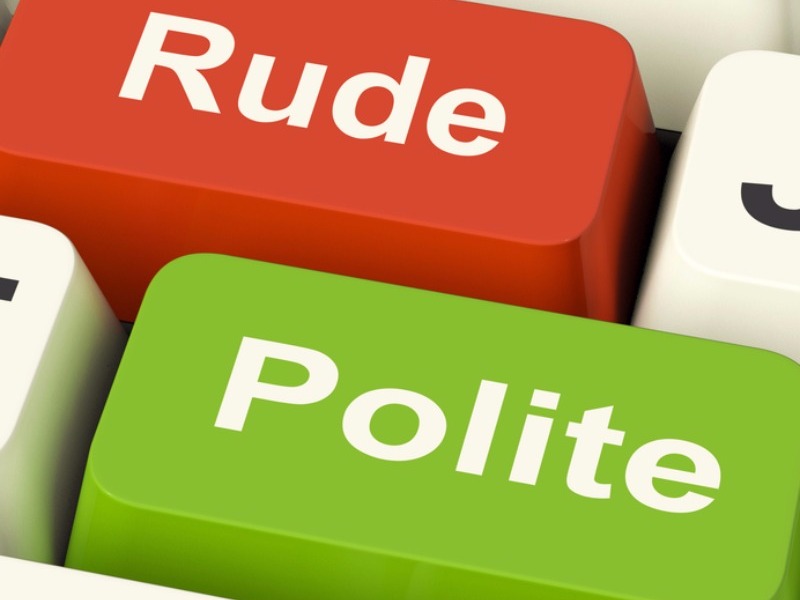Does social media have its own etiquette?

Social etiquette is no longer about knowing which knife and fork to use, but is much more about how you behave on social media. Recently a couple of clients have asked our social media team about blocking people on Twitter and whether there is a way to politely decline accepting people on Linkedin that they didn’t want to connect with. It set us contemplating the question, does there need to be a guide to social media etiquette?
Here are some “social media situations” that you could find yourself in and what we advise may be the best way to handle them…
What to do if a major competitor or someone you don’t like follows you on Twitter?
You shouldn’t worry too much about this and should keep an open door policy to followers, who knows, they could potentially be customers or a place to recruit staff!
If someone blocks you, the best advice is to respect their decision and don’t ask why you were blocked. Just accept that your material was not right for them – and move on.
What to do if someone seeks to connect on Linkedin and you really don’t want to
As Linkedin is a personal social media account, where individuals link to individuals, rather than companies, then you are free not to accept individuals or to discretely decline them. They will know that you haven’t accepted them but not that you’ve actively declined them, so it shouldn’t cause an issue.
What to do about controversial Tweeters, talking about your brand or organisation?
Our advice is to try and take any controversial Tweeter offline. If they are a genuine complainant, they should be happy to be dealt with by phone or email. If they really are just about causing trouble and being abusive, monitor their tweets and continue to respond by asking them to contact you directly to discuss the issue. If it continues and you believe that what they are saying is unfair and untrue, then report them to Twitter/Facebook for investigation and possible shut down of their account.
Now for the other side of the coin, is it rude to follow someone on Twitter or try to connect with them on Linkedin if you don’t actually know them? (but would like to!)
If we’re honest, we’ve all done it - connected to a contact that we don’t actually know in business, but would like to know. This is against the principles of Linkedin and actually it is much better to find if anyone in your network is linked to that person and can help you make that connection. Also, make sure that when you do link in to a new contact that you personalise it with a friendly greeting, rather than using the standard Linkedin ‘I’d like to connect to you’ message. This generally receives a better response.
What to do if someone you have tried to connect with doesn’t respond to you on Linkedin
The approach here is don’t be too pushy. Again, you could look at getting an introduction from someone who does know the person. You could send them a gentle, friendly reminder, but you may just have to accept that they don’t want to connect. At this point, why not search for others within their organisation that you might know and engage with them instead? Once accepted, you could ask them if they could help, by referring you to the person you want to Link up with.
For an informal discussion or meeting about how our social media team could help you contact 01709 300130 or email hello@dragonflypr.co.uk.
